If you own an Equate humidifier at home and feel at a loss on how to use it properly, don't fret. We're here to teach you the proper steps to consider when using one. We did our best to research this topic to bring you the answers that you need to know.
Learning how to use your Equate humidifier at home doesn't take much. Just follow these simple steps:
- Check The Instruction Manual
- Manage Humidity
- Fill Up With Distilled Water
- Place In A Safe And Dry Area
- Regularly Clean The Machine
- Replace Filters
Below, we will discuss each step in greater detail so you understand that operating a humidifier at home is a simple task that anyone can do. On top of that, we will also talk about the benefits of using a humidifier at home and when is the best time to use one. So, continue reading to find out more.
![Aroma oil diffuser on the table at home, steam from the air humidifier, How To Use An Equate Humidifier [Step By Step Guide]](https://hvacseer.com/wp-content/uploads/2022/10/How-To-Use-An-Equate-Humidifier-Step-By-Step-Guide.png)
How To Use An Equate Humidifier?
Learning to use a humidifier is relatively easy, just as long as you follow the steps below.
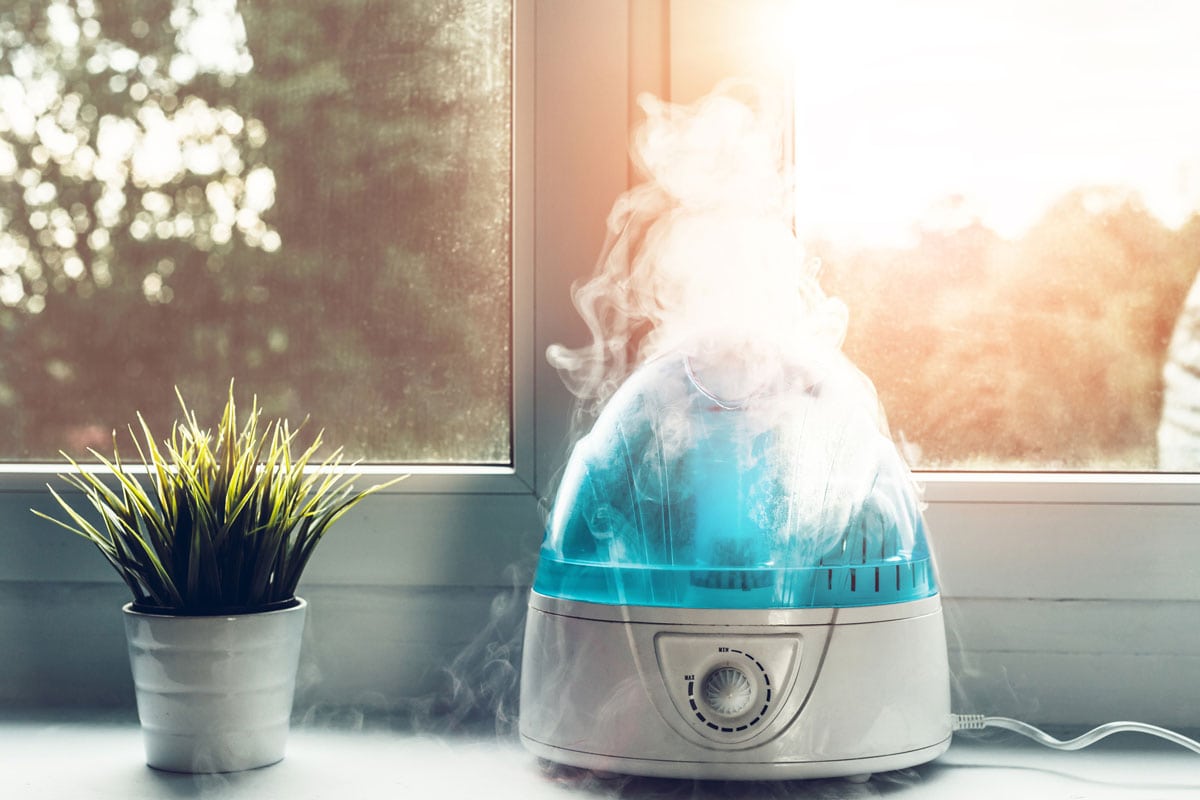
Check Instruction Manual
Always check the instruction manual of any device or equipment you buy. This includes an Equate humidifier. You must not skip this step since not all humidifiers are the same.
Some humidifiers have extra functions, while others only have basic features. By understanding what comes with your humidifier, you're better able to use it properly.
Manage Humidity
While a humidifier has its benefits, you should not use it all the time, or it will increase the humidity inside the room. Too much humidity will cause mold and mildew to grow, which can also trigger asthma or other respiratory illnesses.
It's best to maintain a humidity level of between 30 to 40 percent. To identify the humidity level in a room, it's best to use a hygrometer. Additionally, only use the humidifier when you need it to avoid adding increasing the humidity in the air.
Check this hygrometer on Amazon.
Fill Up With Distilled Water
When using a humidifier, it's always best to use distilled water. That's because they contain fewer mineral particles as compared to other kinds of water.
Filling up a humidifier with water other than distilled water will release those unwanted minerals into the air. In this event, it can be a source of health risks for you and your family. Additionally, those same minerals can harm the humidifier, causing severe wear and tear in the long run.
For more information regarding this, refer to the article linked below:
Can You Use Tap Water In A Humidifier?
Place In A Safe And Dry Area
It's best to put a humidifier near the center of a room far out of reach from pets and children when in use. This is to avoid any unwanted accidents from occurring inside your home. Store it somewhere dry when not in use. This helps prolong the humidifier's lifespan and prevents it from being a nuisance around the house.
Curious about just how close you can place a humidifier near a baby? You might want to check out the article below for more information:
How Close Should Humidifier Be To Baby?
Regularly Clean The Machine
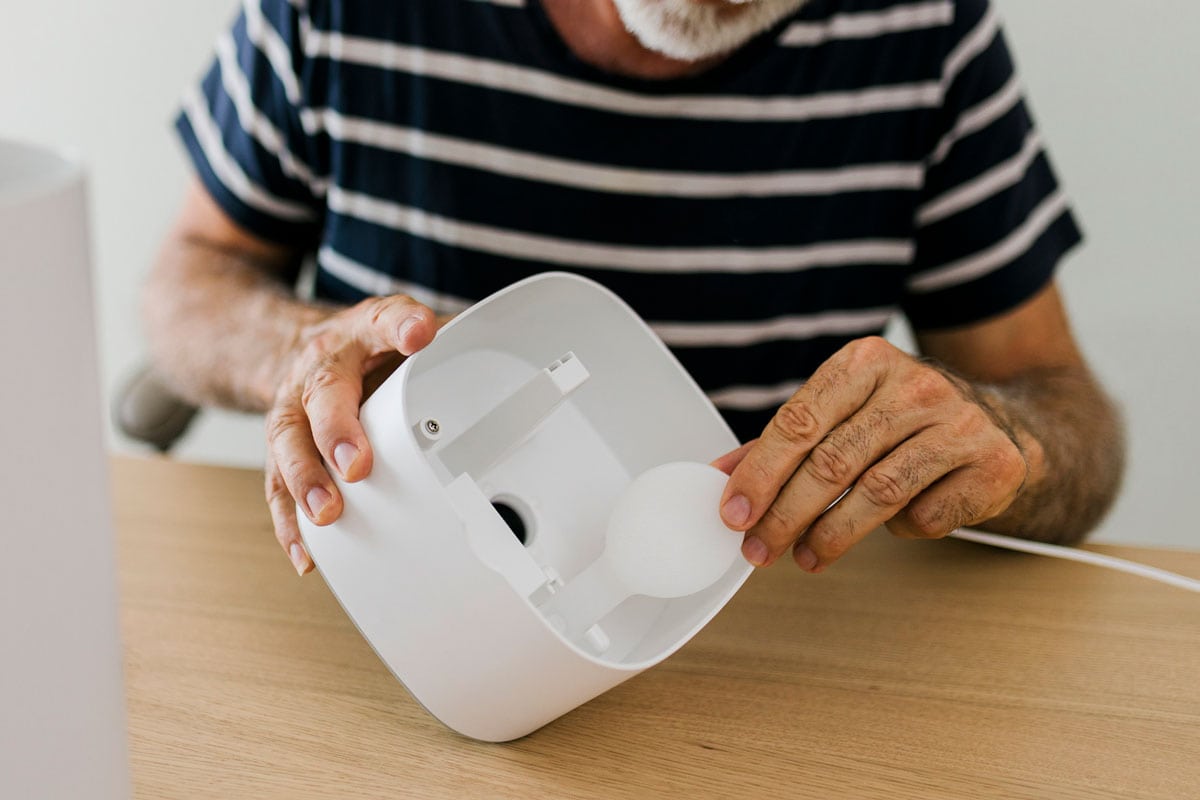
The next thing you need to remember when using a humidifier is to clean it regularly to avoid the build-up of microbes. Always change the water each time you use it to avoid using stagnant water that may contain germs and bacteria.
Additionally, you may notice a whitish build-up inside the humidifier after using it for quite a while. To remove this, use a mixture of water, vinegar, or a hydrogen peroxide solution to clean it out. Also, check the instruction manual for any cleaning solutions that the manufacturer recommends.
When cleaning, make sure to unplug the humidifier. The last thing you want is to feel the electricity coursing through your body.
If you wish to know more about cleaning a humidifier, then the articles provided below will help you:
How To Clean A Humidifier With Vinegar
Is Pink Mold In Humidifier Dangerous [Inc. How To Eliminate It and Prevent It]?
Replace Filters
Last but not least, never forget to replace the filters of a humidifier regularly. Using a humidifier regularly every week necessitates replacing the filters once every two to three months.
Doing this helps prevent the growth of bacteria within the machine. And in turn, this prevents the spread of germs and microbes in the air when in use.
What Is A Humidifier?
Just like its name states, a humidifier helps increase the humidity in an area by adding moisture to the air. They usually release it in two ways, either via steam or water vapor.
Do take note though. A humidifier doesn't purify the air. While it does help make the quality of the air inside a room, it doesn't clean it in any way. A humidifier is all about adding moisture to the air, especially in areas where the air is dry or during the summer heat.
Check this humidifier on Amazon.
What Are The Benefits Of Using A Humidifier?
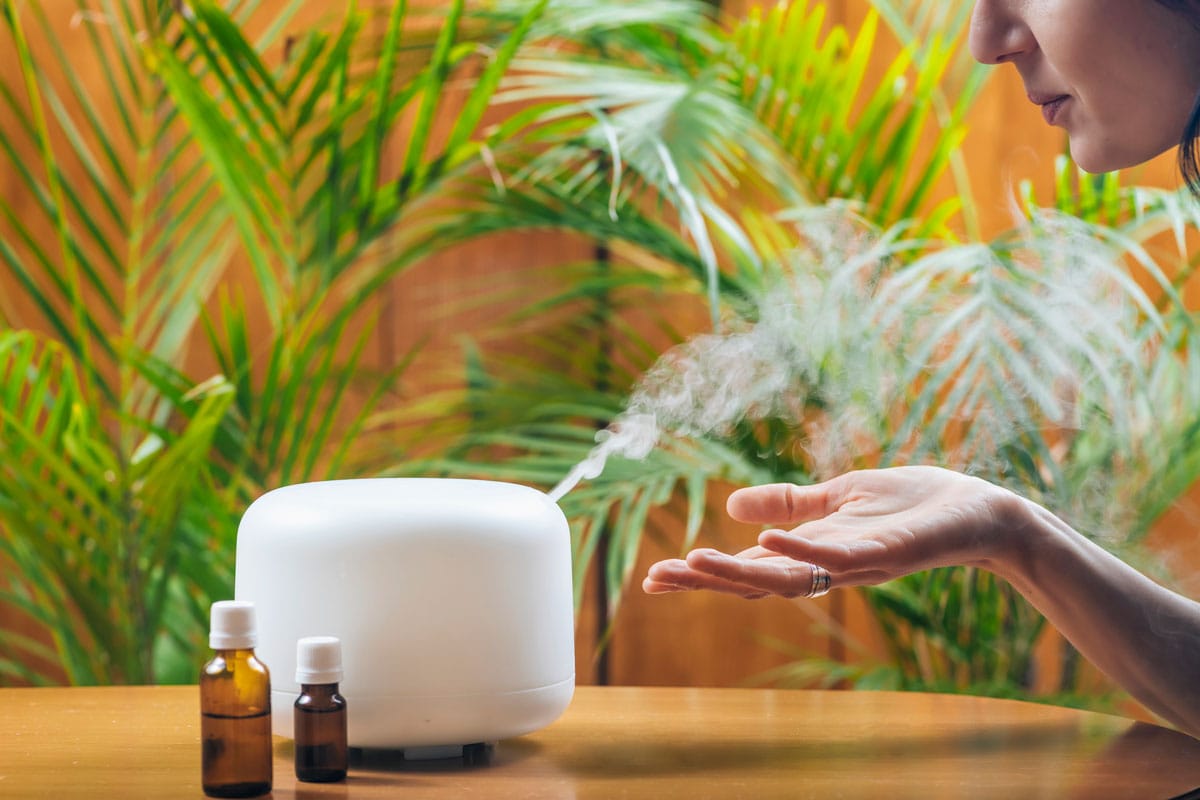
Are you curious why a lot of people have been buying and using humidifiers as of late? Then look no further as this section tells you all about it and more:
Reduces The Spread Of Germs
Using a humidifier can help prevent you and your family from getting sick. Various kinds of research and studies back this up. That's because most bacterias and viruses have a slower infectivity rate in places with high humidity than in places with dry air. So, if you often catch a common cold, try using a humidifier to help alleviate that problem.
Prevents Dry Skin
Using a humidifier will help keep you fresh and comfortable, literally. That's because it helps counter the effects of dry air, making you feel less itchy and uncomfortable.
This is also why you feel irate and itchy in places where it's dry, and there's barely any humidity. The dry air pulls away the moisture from your skin, causing it to crack and making you feel the need to scratch the affected areas. A study made in 2008 helps prove that humidifiers will help make your skin feel fresh and glowing.
Relieves Allergy Symptoms
As mentioned earlier, humidifiers help slow down the spread of bacteria and viruses in the air. This also extends to allergens, helping those with asthma and other respiratory illnesses to feel better and breathe easier.
That's because an increase in humidity helps decongest and soothe a person's nasal and throat passages. Although, one must be careful not to overuse a humidifier as exceeding the recommended humidity rate inside a room will cause other problems to appear instead.
Mold, mildew, and dust mites are just some of the worries of overusing your humidifier. That's why it's best to check your room's humidity level with a hygrometer to prevent this issue.
Alleviates Snoring And Provides Better Sleep
Humidifiers will help give you a good night's sleep. Not only that, it helps reduce your snoring so that those around you will sleep better through the night.
Your airways, especially your nasal passages, open up when exposed to an area with high humidity. Although this doesn't altogether remove the risk of snoring, other factors like weight, gender, and alcohol intake also affect your likeliness to snore.
When Is The Best Time To Use A Humidifier?
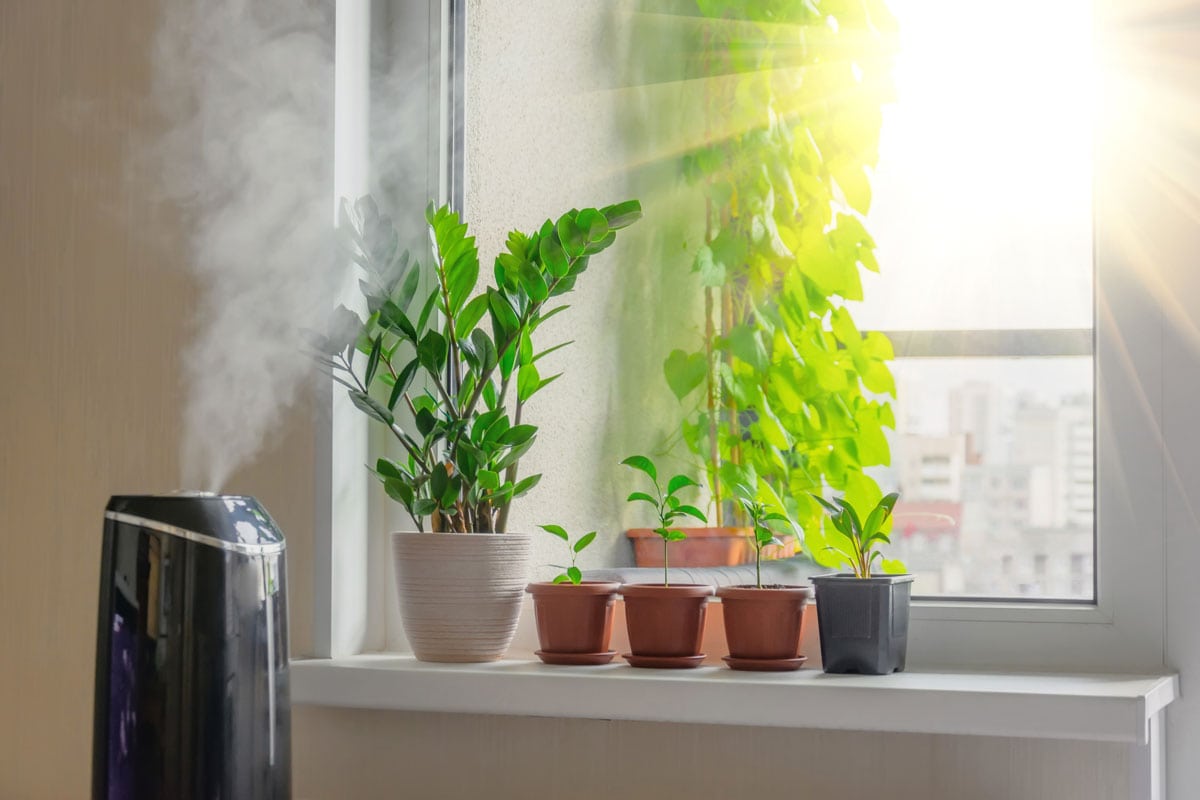
You might think the best time to use a humidifier is during the summer when the air is dry due to the intense heat. Or during the winter when the cool air dries up the moisture in the air. However, a humidifier can be helpful throughout the entire year in most places.
During the summer months, not only is the air dry due to the intense heat, but also because of the air conditioning. The cool, dry air that the air conditioner blows do feel nice, but it also causes your skin to dry out. So, using a humidifier with air conditioning is an excellent way to alleviate this problem, as it also helps counter seasonal allergies.
And when it's the onset of winter, using a humidifier helps bring moisture into the air while keeping yourself warm inside your home. This keeps you comfortable sleeping at night as it keeps your nasal passages free from obstructions.
To Wrap Up
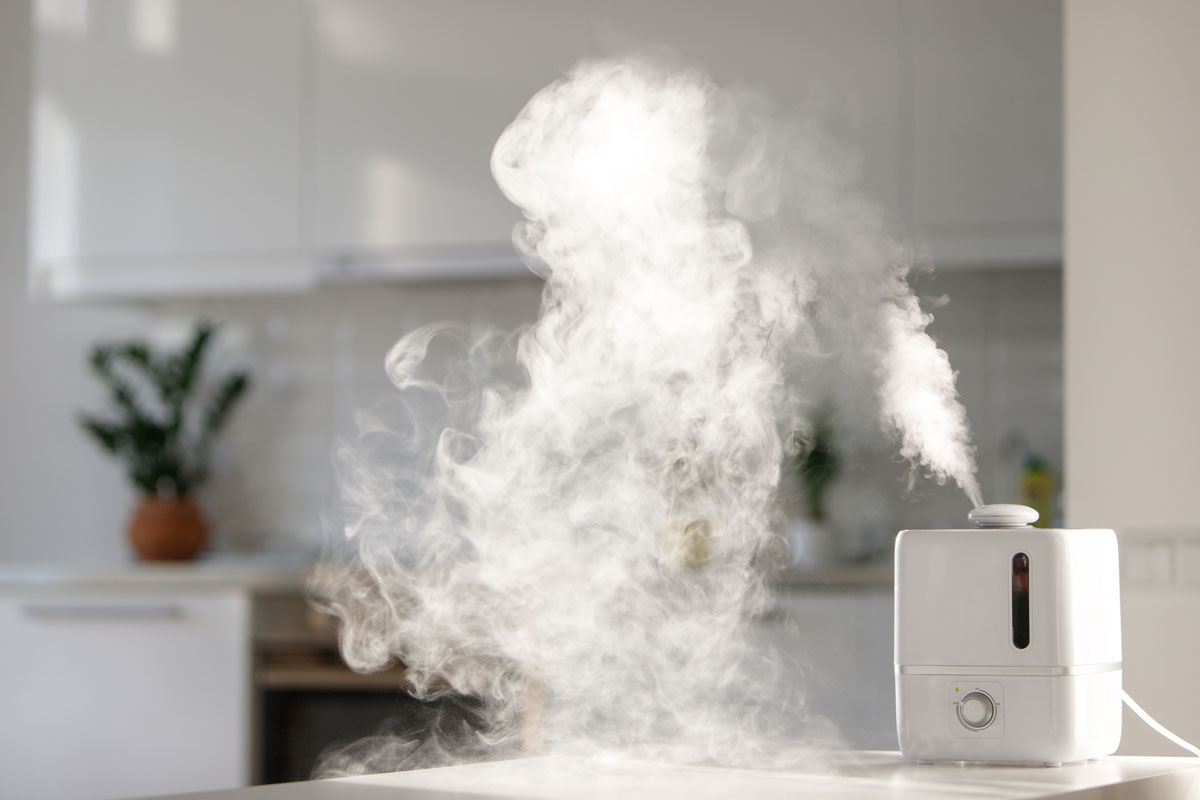
When using a humidifier of any kind, it's always best to check the instruction manual that comes with it. Then, follow it up by managing the humidity of the room where you plan to place the humidifier.
The last thing you want is to create a suitable environment for mold and mildew to flourish. Ensure only to fill the humidifier with distilled water and regularly maintain the machine's cleanliness afterward.
Did this article help you find out what you need to know? If so, why not check the links provided below? They talk about other humidifier brands and how they work:



